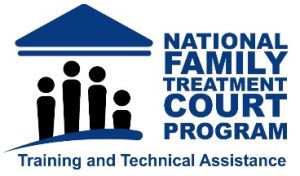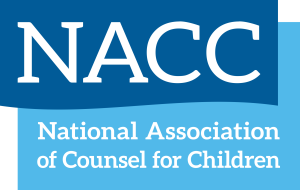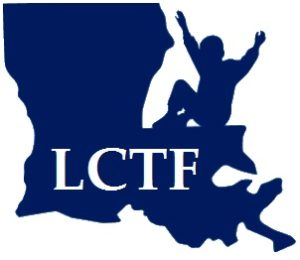Calendar

Thank you so much for your interest in our camp! We’ll be in touch by June 14 to let you know whether we are able to offer a spot to your camper! If you don’t receive an email from us, please don’t hesitate to contact us at tmerrick@fhfnola.org (unfortunately, our emails sometimes go to spam). The camp cost is $250 per week. A two-week-long summer camp from 10 a.m. to 3 p.m. and we focus on disability justice, celebrating neurodiversity, and simply encouraging everyone to explore and have fun in a safe, supportive environment! We welcome all applications. This 10-day camp is designed for neurodiverse individuals to have an opportunity to explore coding with Texas Instruments Technology. Activities include daily competitions involving games, robotic vehicles, microcontrollers, calculators, and PYTHON programming. We aim to create a low-pressure, sensory-friendly environment that supports all types of communication.

In this webinar, presenters will discuss the critical multidisciplinary needs of children who have been prenatally exposed to a substance and their families and articulate ways in which current policies, initiatives, and workforce development can be leveraged through multi-system collaboration to enhance care and outcomes. Drawing from state approaches to implement the plans of safe care requirement of CAPTA legislation, the presenters will discuss the need for additional implementation support and federal technical assistance, multi-system collaboration, and equitable supports to improve outcomes.

FTCs, like all drug courts, historically focused on treating substance use disorders (SUDs). However, FTCs cannot maintain this singular focus since 45% of adults with an SUD in the general population also live with a co-occurring mental health disorder. People with an untreated co-occurring disorder are less likely to complete substance use treatment or achieve sustained recovery; they are also more likely to experience unemployment, homelessness, child welfare involvement, incarceration, and suicide.
Many dependency court professionals recognize the prevalence of co-occurring disorders. Still, due to complexities in screening, assessment, diagnosis, and securing mental health services, FTCs may not appropriately identify and treat parents with co-occurring disorders. This Practice Academy examines the interactive nature of substance use and mental health disorders, while providing strategies for improved approaches and outcomes for parents and their children.
Learning Objectives:
- Summarize definitions and prevalence rates of co-occurring disorders and explore theories of how and why substance use and mental health disorders co-occur.
- Identify complexities and opportunities in screening and assessment to more accurately identify parents with co-occurring disorders.
- Apply evidence-based approaches for integrated treatment and recovery.
- Adopt strategies from FTCs who successfully serve parents with co-occurring disorders.
FTCs, like all drug courts, historically focused on treating substance use disorders (SUDs). However, FTCs cannot maintain this singular focus since 45% of adults with an SUD in the general population also live with a co-occurring mental health disorder. People with an untreated co-occurring disorder are less likely to complete substance use treatment or achieve sustained recovery; they are also more likely to experience unemployment, homelessness, child welfare involvement, incarceration, and suicide. Many dependency court professionals recognize the prevalence of co-occurring disorders. Still, due to complexities in screening, assessment, diagnosis, and securing mental health services, FTCs may not appropriately identify and treat parents with co-occurring disorders. This Practice Academy examines the interactive nature of substance use and mental health disorders, while providing strategies for improved approaches and outcomes for parents and their children.
Learning Objectives:
- Summarize definitions and prevalence rates of co-occurring disorders and explore theories of how and why substance use and mental health disorders co-occur.
- Identify complexities and opportunities in screening and assessment to more accurately identify parents with co-occurring disorders.
- Apply evidence-based approaches for integrated treatment and recovery.
- Adopt strategies from FTCs who successfully serve parents with co-occurring disorders.

Legal advocacy for children, youth, parents, and kin is a specialized area of law which demands ongoing interdisciplinary training, education, and skill-building. NACC’s annual National Child Welfare Law Conference is designed to meet these demands. Our conference is a premier continuing legal education and community-building event for practitioners and policy advocates in child welfare, juvenile justice, and family law.
More than 46 years of experience has gone into producing this annual training and networking experience. Don’t miss this opportunity to come together with your fellow advocates to learn, to network, and be inspired to take your advocacy to the next level. Join the national community of multidisciplinary advocates working to improve systems serving children, youth, parents, and kin.
Over several days, leading experts from the fields of law, medicine, mental health, immigration, social work, education, and more will expand your understanding of child welfare law, explore its intersection with other fields, and provide practical tools to help further your practice and achieve the best possible outcomes for children, youth, parents, and kin. Whether you are a new attorney or an advanced practitioner, this informative and engaging program will advance your practice.

An objection is a formal protest raised by a party or counsel during a legal proceeding asserting that an error, contrary to the rules of evidence or other procedural law, has been or will be made. There are objections to questions and objections to answers, those for opening and closing arguments, and specific ones for exhibits and expert witnesses. Judge Jennifer Womble will present information about objections generally and those that are especially important in Child in Need of Care cases. We invite you to bring your questions.
Learning Objectives:
- Understand the purpose of an objection.
- Become familiar with common objections in Child in Need of Care cases.
- Learn how to make effective objections.
Speaker:
- Judge Jennifer Womble,* Jefferson Parish Juvenile Court

Join us for this month’s Coffee and Conversations series for this session focused on the role of advocacy in shaping policies that protect children, the process of developing and promoting legislative measures, and the importance of community and stakeholder involvement. Attendees will gain insights into effective advocacy strategies, understand the legislative process, and learn how to engage with policymakers to champion the cause of child protection. This session will provide practical examples, aimed at empowering participants to become strong advocates for safeguarding children from abuse and neglect.
Speaker:
Susan East Nelson, JD
Executive Director, Louisiana Partnership
for Children and Families

The 24th National Conference on Child Abuse and Neglect (NCCAN), sponsored by the Children’s Bureau, will be held April 1–3, 2025, at the Bethesda North Marriott Hotel and Conference Center in Rockville, Maryland. Innovative sessions will focus on developing ideas-to-action strategies that provide opportunities to exchange ideas and learn what works from community members and peers. The conference will also offer plenaries, workshops, posters, and exhibits, that highlight Children’s Bureau priority areas. So, mark your calendars now—additional information is coming soon. We look forward to seeing you there.

